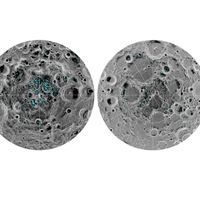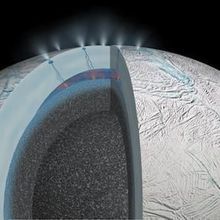Login
Subscribespace biology

Q&A: How Animals Change in Space
Jef Akst | Nov 25, 2020 | 4 min read
Weill Cornell Medicine geneticist Christopher Mason speaks with The Scientist about a bolus of new work on the physiological, cellular, and molecular effects of leaving Earth.

Spaceflight Alters Genes of Human Stem Cell–Derived Heart Cells
Emily Makowski | Nov 7, 2019 | 3 min read
Cardiomyocytes made from iPSCs aboard the International Space Station had upregulated mitochondrial functioning.

Tardigrades May Have Made it to the Moon
Ashley Yeager | Aug 7, 2019 | 2 min read
An Israeli lunar lander carrying the tiny animals crashed into the moon in April, and now scientists are trying to determine if the creatures are still alive.

Image of the Day: Space Mice
Chia-Yi Hou | Apr 15, 2019 | 1 min read
See what the rodents do aboard the International Space Station.

China Is Growing Cotton on the Moon
Ashley Yeager | Jan 15, 2019 | 2 min read
Images from the country’s Chang’e-4 lunar lander show the first sprouting plants.

Definitive Evidence for Water Ice on the Moon: Study
Ashley Yeager | Aug 21, 2018 | 2 min read
Data from the Indian Space Research Organization’s Chandrayaan 1 spacecraft show frost on the lunar north and south poles.

Mars Has a Lake of Liquid Water: Study
Ashley Yeager | Jul 25, 2018 | 2 min read
Radar data indicate that the Red Planet’s southern polar ice sheets cover a 20-kilometer-wide body of water.

Researchers Grow Veggies in Space
Ashley Yeager | Jun 1, 2018 | 4 min read
Experiments to cultivate greens on the International Space Station and in simulated Martian environments pave the way for feeding crews during deep space missions.

Basic Science in Orbit
Abby Olena, PhD | Aug 17, 2017 | 5 min read
Studying biology in space sheds light on future space missions and life on Earth.

Molecules that Could Form “Membranes” Found Above Titan
Jef Akst | Jul 31, 2017 | 2 min read
Vinyl cyanide is thought to rain down onto Saturn’s largest moon, though whether the molecule self-assembles into membrane-like structures is unclear.

Study: Hydrogen on Enceladus Could Support Microbial Life
Diana Kwon | Apr 17, 2017 | 1 min read
The plumes that erupt through the cracks on the icy exterior of one of Saturn’s moons contain molecular hydrogen, researchers report.

Polar Algae Survive More Than a Year in Space
Joshua A. Krisch | Feb 12, 2017 | 2 min read
Two samples of Sphaerocystis that spent 530 days growing on a panel outside of the International Space Station have returned to Earth largely unscathed.

Bacteria Show Signs of Starvation in Space
Mallory Locklear | Nov 18, 2016 | 3 min read
E. coli cultured on the International Space Station show increased expression of genes related to starvation and acid-resistance responses, researchers report.

Opinion: On Space and Health
Didier Schmitt | Sep 24, 2013 | 3 min read
What health and space sciences can learn from each other to boost innovation

Radiation Risk for Mars Astronauts
Kate Yandell | Jun 3, 2013 | 2 min read
An instrument aboard the spaceship that carried Curiosity to Mars has found that deep space travelers would face worrying levels of radiation.
Water Once Ran on Mars
Jef Akst | Oct 1, 2012 | 1 min read
The Curiosity rover discovers pebbles that were likely formed by ancient streams on the Red Planet.
Space-bound Fish
Jef Akst | Jul 31, 2012 | 1 min read
Japanese astronauts deliver an aquarium to the International Space Station to study the effects of microgravity on marine life.
Space Rocks
Cristina Luiggi | Jun 1, 2012 | 3 min read
Orbiting ultrasound machines are being used to diagnose and treat astronauts' kidney stones.
